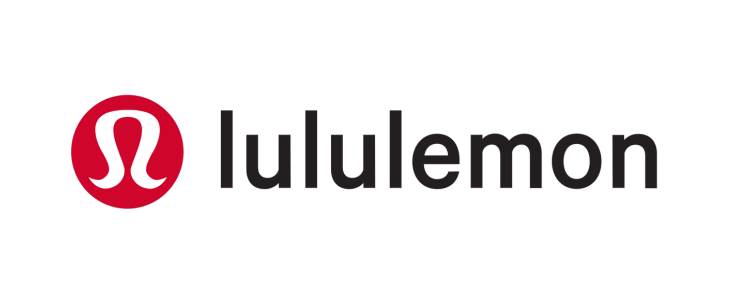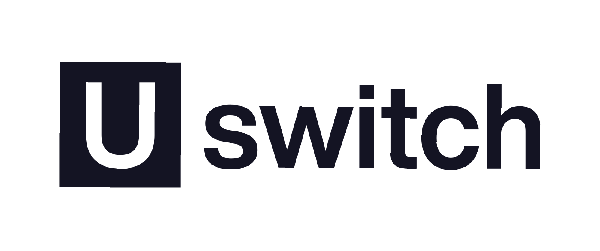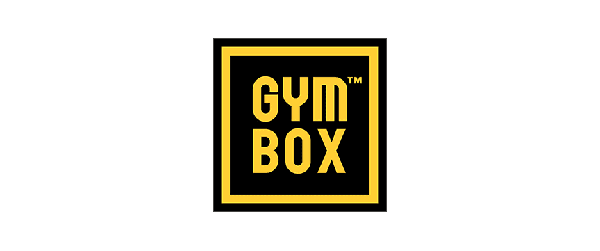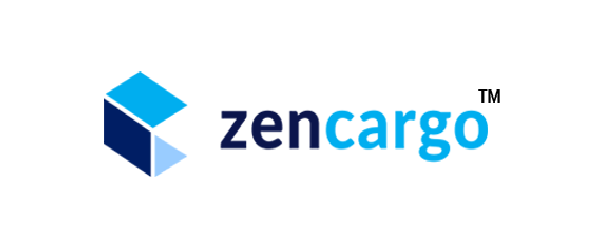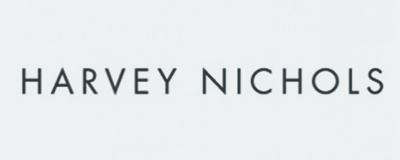Lunchtime Learning: Aspiring Female CFOs
Only 14% of CFOs in FTSE businesses are female. We want to do our best to change this, as soon as possible.
Last week, we hosted our Lunchtime Learning, Aspiring Female CFOs event. The event was hosted in light of International Women’s Day earlier this month to help focus on aspiring female CFO’s.
We were joined by two established female CFOs, who shared with us their insights and experiences on how they got to where they are today.
Introduction
Claudia Munn, currently CFO at Avado, started out in accountancy practice. Claudia’s career has mainly been in blue chip companies. She has worked for a variety of businesses from Johnson and Johnson to Tesla. After working her way up through different finance roles and a variety of companies, she became CFO for Volvo UK. After four years, Claudia decided that she wanted to move somewhere a bit smaller and more fast-paced where she could make a difference in a quicker time frame. So, Claudia moved into the private equity world, working for a company called CitNOW and finally moved on to Avado.
Catherine Birkett, currently CFO at GoCardless, started her career at KPMG. Shortly after qualifying joined the company, Interoute, as Head of FP&A for around four years. After experiencing a turbulent ride within the business, Catherine was offered the CFO role aged just 31. Catherine spent the next 14 years at Interoute and she was involved with the selling of the business in 2018. She then left after the acquisition of the company but decided she wanted to continue her career in an executive role. Catherine wanted to go back into a smaller business where she could continue to build and made the move to GoCardless.
Questions
1. Over the years have you encountered any barriers to your success or growth as a female leader?
Claudia: I can think of one very specific glass ceiling example. I am going to caveat this by saying it was a very long time ago, I had taken six months maternity leave. Two days before I was due back in the office, HR called to tell me that my boss who is Head of Finance had taken early retirement. I was surprised to find out that my new line manager was one of my colleagues, who did not work in finance, was taking over the Head of Finance role. I thought that was a little bit strange. We got on very well, so there was no issue there but looking back he was clearly embarrassed. I wasn’t even interviewed, I didn’t even know there was a vacancy, and I was the natural successor. Here I was being asked to support him in his new position, which I was happy to do as we got on very well. I did step back and think, would this have happened if I had not been on maternity leave or if I were a male? I am not too sure?
It was the catalyst I needed to sharpen up my CV and I was very professional and carried on. But it was the wake-up call I needed, and I had hit the glass ceiling. It was a learning experience for me.
2. How have you developed confidence as a leader?
Catherine: Naturally, I have always been able to lead. I think I’m quite confident and assertive just as a natural persona. Quite often that is how I come across versus how I feel deep down and underneath. I remember when I was first promoted to CFO, which I was naïve about at the time, what I was scared about and lacked confidence in was would I be able to have the gravitas to carry the CFO role. Taking into account that I was female in a very male-dominated industry. I was usually the only female around the table. Also Northern educated, with a comprehensive background, so I don’t really have a lot of smoothness to me. I often did worry.
The bit I found really tough in the job was running a team and building an effective financial control environment. The side that came naturally to me was just being in the leading role. Being around the board table and asserting myself and my opinions, I quite quickly got confidence within that area. The area where I had to learn a lot and had quite a lot of moments when I was less sure of myself, was when I made so many mistakes in running the financial control side. Thankfully, I was allowed to learn from those mistakes and develop people underneath me and a team who counteract what I know as my own weaknesses.
The second time was when I was returning from maternity leave. Going back thirteen years, I remember coming back and my boss said, you might not want to come back. I knew I was definitely coming back. But I remember I was worried that the acting CFO was going to take over the role and, me being in a worse position as I had young children and I would have to juggle that. Then later on, which proves you need to continue to build confidence particularly as a female, when private equity came in, I was very certain they thought I wasn’t the right person for the job. Thankfully, I proved my case. I also learnt from all those instances and I am definitely way more effective today because of all the various experiences and challenges that I went through.
3. What are the strategies women can use to achieve the success they want in their workplaces, especially in male dominated roles or industries?
Claudia: I think as women, it’s a bit of a generalisation, but we have a bit of a tendency to just want to get on with things. I think sometimes, just step back and make a list of the achievements and things you have done. No matter who your line manager is, force a quarterly review with them. I would also encourage you to gain some 360-degree feedback from people in your organisation. Talk to people and build your internal networks. Open up channels of communication with as many people as you can in your organisation. I’ve worked within the motor industry, in some very male-dominated environments, but actually what it comes down to is communication. Find a way to communicate, get on the same wavelength and find out what they want. That’s the strategy I have adopted reasonably successfully.
Would you recommend a mentor?
Definitely. At Avado we have a Fast Futures Programme where we team up individuals with mentors. Both mentor and mentee, have such a positive experience with it. If you can find somebody to have that chat. I would recommend both, someone internally and externally.
4. As a female leader, what has been the most significant barrier to your career to date?
Catherine: I think it is juggling being a Mum and being successful in your career. I always say when I’m talking about this, the only way to have sanity and to do those two things is to realise there is going to be compromise. There were times where I have had to miss the occasional thing. I became very good at walking out of the office at 5 o’clock and then I would be available later if needed. Getting into the position where you don’t feel guilty doing that. I think that was the hardest challenge to work through and get to a place where I was comfortable with it and felt that I wasn’t constantly thinking I was failing at one or the other. I think some of those barriers will be a little easier today. Thankfully everybody understands this now, notwithstanding that there is prejudice still around in some areas.
5. What do you think the biggest challenges or opportunities ahead for the next CFOs are?
Claudia: I think we are in for some tough times ahead. We haven’t seen even the start of the impact from Covid yet. I think the next few years are going to be really tough. We are increasingly in a more digital world and we all have to keep up. I think the way we work has changed and we need to work in a more agile way. Things have changed, it was almost an embarrassment having a child whilst having to juggle a career. Thankfully things have changed a lot and things are still changing. Mindsets are changing, you look things like Black Lives Matter. I think building a really diverse workforce is what everybody should be thinking about. Because we need all those different inputs and ideas. You can’t just recruit to type, it’s just not going to work in the future.
6. How have you found the jump from senior management to CFO?
Catherine: For me, I think I am probably quite different to most people in my position. It happened more as a shock rather than a progression. I was a number 2 for a very short time within a finance team. It was only for a year and then I was thrown into the CFO role so, I had to learn in the role. The biggest thing I learnt in those early days, and not immediately, was making sure I had the right team beneath me. When you step up you can’t be doing any more, particularly as the organisation gets bigger. Being able to delegate is so important because you have to have the headspace as CFO to have time. There may be the odd occasion where you have got a bit of spare time because there is a deadline or waiting for your team to complete something. But you have got to let your team complete it. If you start stepping in too early, it can be counterproductive.
That art of delegation and making sure that people beneath you have the skill sets you need. I am a massive believer in making sure, as your role and remit expands, which happens as you become higher up in leadership. You have to realise there are bits of your job that are your responsibility but not your specialism. Tax would be a prime example for me. Ensuring you have people beneath you who are experts in things that you’re not is important. I definitely didn’t get my team in place quick enough when I became CFO at Interoute.
Claudia: I had been a financial controller for so long. I had been doing everything to find a way to become a Finance Director initially and then CFO. The thing I found was, that hadn’t occurred to me is that it is lonely. All of a sudden, people don’t treat you like peers anymore because you are now in a far more leadership role. That was the one thing that really took me by surprise. I quickly adapted and readjusted.
7. What have you had to sacrifice to get to where you are in your career?
Claudia: Time. I don’t think it’s the smart way to do it and I cannot tell you the amount of hours I have put in. I recently read an interesting article. It’s a Harvard Business Review called “Manage Your Energy, Not Your Time”. I found that quite liberating. Also, I am going to try and put some of those techniques into practice and not just solve the problem by just throwing myself at it for 24 hours.
8. How do you balance work and home life?
Catherine: I think that has come much better and easier with age. I think being thrown into parenting means that you have to do something because you have someone who is very dependent on you, so it changes your perception. That being said, I had to get comfortable with things like having a nanny. That was one hundred per cent the only reason why I was able to do what I was doing. Particularly at Interoute, I used to have to travel a fair amount. As I got older and today, I don’t work 24/7. I refuse point blank to do it, I absolutely balance my home life. Really importantly, I’ve learned to be very disciplined about knowing what is really important and when I do need to sit on calls until late at night. Which I do for example, like closing the deal at Interoute. I did that working very long hours. At the time I was going through Breast Cancer, so I was also going through treatment for that at the same time I was selling a business, I just got on with it.
I am, conversely, super disciplined about switching off after the last meeting and I very rarely work weekends. Only when it is absolutely a necessity to achieve something and pushing back on behalf of my team. I learnt to do that when I became confident that I was being employed because of my own capabilities and therefore I was no longer thinking I have got to prove myself. What experience gives you is the ability to cope with new things and new changes.
9. What is the one piece of advice that has greatly impacted you and your career trajectory?
Claudia: I think it’s just having a clear vision and focus on where you want to get to. Know the end point and be a bit flexible. You know where you want to get to and you’ll find a way to do it. It is all about building up the experience. I put my hand up for everything, every new piece of experience I could get, I just wanted to be as rounded as I could be. I think it’s absolutely the best role there is. You get to touch every single bit of the business and you get to build a good relationship with the CEO as well. You have lots of demands on you and you get lots of different insights. It’s a brilliant role.
10. What should the aspiring CFOs listening today be doing and thinking about now in order to work towards being a future CFO?
Catherine: Taking on experience and knowing that doing something even if there is no obvious benefit but something different to what you’ve done. I think that creates you the best possibility to move onto the CFO role. Also, to be aware of those areas of weakness you have got and making sure you know how you are going to cover that. Either go on a course or something that would give you some experience or exposure that are not within your comfort zone. I think it’s important you’re constantly putting your hand up.
I don’t think you ever presume you’re going to get promoted. Adding strings to your bow, even if it’s in the company you are in now or for the future environment, it is probably going to be really good stead. Sometimes the best learning experiences are those things that you know you say you were never going to do.
Thank you to everyone who joined us for the event. If you were not able to make to make it but would like to watch back the event in full, the session was recorded so please do contact us and request a copy of the recording.
For any further questions on Aspiring CFOs or anything else, please do get in touch and one of our Senior Consultants will be happy to help.
